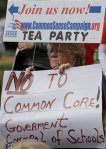When you get a new appliance, do you take time to fill out the little card and register your toaster, coffee maker or iron? Of course you do, if you want the company to keep track of it and fix it in the event of a breakdown.
Videos by Rare
We’re pretty good in America about registering things. We register our preferences for baby shower or wedding gifts to avoid duplications. Voting registries make sure only those eligible can cast a ballot. We register our motorcycles, boats and cars so we — and the police — can keep track of them.
What we don’t do is keep tabs on people who abuse and neglect children. The overwhelmed young single mother who physically harms her children, the violent boyfriend who wants the other man’s children out of his way, the uncaring babysitter who disciplines with slaps and punches. Such violence against children often escalates to the point of murder.
The National Children’s Alliance, citing the latest annual figures, says more than 760,000 American children are abused or neglected every year. In 2009, an estimated 1,770 children died as a result. Congress has declared that number is “significantly underreported” and notes that more than 80 percent of the deaths are of defenseless children under the age of four.
If there had been some sort of national registry for cowards who hurt kids, little Tyrese Robert Ruffin might still be alive. The man who police have charged with beating the 2-year-old to death in a Sioux Falls, South Dakota apartment had a sordid past of violence against women with young children. (Patterson avoided jail time for the assault of a 3-year-old and his mother a year ago by agreeing to attend counseling.)
It’s not known if Tyrese’s mother knew about Joey Patterson’s police record, but she left her tiny son in Patterson’s care earlier this month. Now, the boy is dead and Patterson, 27, is charged with aggravated assault on an infant.
Sadly, these types of cases happen all too often. The only reason Tyrese’s death made national news is because his birth father is Adrian Peterson, star running back for the NFL’s Minnesota Vikings.
Think of all those other battered and dead children. Can’t we figure out a way to register the names, addresses and actions of people like Joey Patterson so we can keep track of them? Don’t we owe that to our kids?
The cautionary example, however, is what happened to our National Sex Offender Registry, signed into law in 2006. The Department of Justice coordinates the effort, which brings together all the state sex offender lists into one handy-dandy Internet location. But it has become a bloated hodge-podge of names. Someone who urinated in public is treated to the same kind of harsh years-long scrutiny as a career pedophile. It is a registry system so overloaded with names now that it has lost its stated focus: to monitor those predators whose lifelong sexual obsession revolves around being with children.
What’s to say the idea I suggest here — one nationalized and centralized list of people known to have committed violence against youngsters — wouldn’t also become a hot mess to administer? Well, nothing — except the hope that we have learned a lesson from the sex registry debacle. You don’t add the name of a person who once spanked a child. But you certainly do add the name of those who have been legally charged with committing violence against a child. The likelihood is if they did it previously, then they will do it again, given the chance.
In January 2012, President Obama signed the Protect Our Kids Act and supporters hope it will, once again, spur discussion of this registry idea. It’s been floating around for years now, but there have always been those who have too quickly dismissed the idea for the problems it might dredge up or the flaws it might contain. As if thinking people couldn’t intelligently discuss a registry plan and come up with a workable formula.
I read the six-page Protect Our Kids bill, calling for establishment of a commission to spend two years holding hearings and studying the problem, and nowhere are perpetrators even mentioned. But, there is this one encouraging sentence instructing the commission to, “develop guidelines for the type of information that should be tracked to improve interventions to prevent fatalities from child abuse and neglect.”
If the commission uses its $2 million budget wisely, it will quickly figure out that the biggest threats to at-risk children are the one-parent family, absence of values, lack of education, poverty and outsiders who would do them harm.
I’m hoping they figure out a way to adequately keep tabs on those who make it a habit of taking out their frustrations on children. Then, I hope, Congress takes the legislative actions needed to make a registry a reality.
© CREATORS.COM



